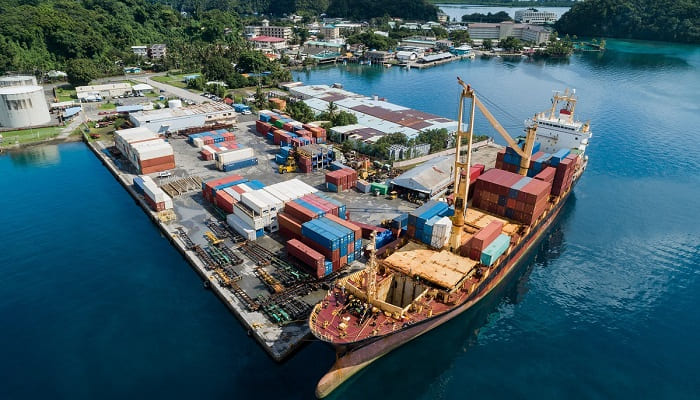The marine industry will need more investment in infrastructure and sustainability to withstand upcoming supply chain crises, according to UNCTAD’s Analysis of Maritime Transport 2022, a yearly comprehensive review of global maritime transport.
Increased investment in maritime supply chains has been advocated for by the UN Conference on Trade and Development (UNCTAD) in its landmark review of maritime transport 2022 report. For the shift to low-carbon energy and future global crises, ports, shipping fleets, and hinterland links need to be better equipped.
A mismatch between demand and availability for maritime logistics capacity results in increases in freight prices, traffic, and crucial disruptions to global value chains, as the supply chain problem of the past two years has demonstrated. Over 80% of products traded globally are transported by ship, with the ratio being significantly greater for the majority of developing nations. As a result, there is an urgent need to increase resistance to disruptions that interrupt supply chains, cause inflation, and disproportionately harm the poor.
Rebeca Grynspan, the secretary-general of UNCTAD, stated that they needed to draw lessons from the current supply chain crises and improve overall readiness for upcoming difficulties and transitions. This entails strengthening the intermodal infrastructure, replacing the fleet, and enhancing port efficiency and trade facilitation.
And the decarbonization of shipping cannot be postponed.
To boost global supply networks, investment in maritime transport systems is required
Container spot freight costs reached five times their pre-pandemic levels in 2021, reaching a new peak in early 2022 and dramatically boosting consumer prices. Logistics supply bottlenecks and a spike in demand for consumer goods and e-commerce also contributed to this increase. Due to the ongoing energy crisis, rates have decreased since mid-2022, but they are still high for oil and natural gas tanker cargo.
Due to the protracted COVID-19 epidemic, supply chain delays, and accompanying economic measures, dry bulk freight rates soared. According to a UNCTAD simulation, rising grain prices and dry bulk freight costs could result in a 1.2% rise in consumer food prices, with the increases being greater in middle- and low-income nations.
To reduce the carbon impact of maritime transportation, more funding is necessary
According to the analysis, the global maritime fleet’s overall carbon emissions increased by 4.7% between 2020 and 2021, with container ships, dry bulk ships, and general cargo boats accounting for the majority of the increases.
Concern over the rising average age of ships is another issue raised by the report. The average age of ships today is 21.9 years based on their number and 11.5 years based on their carrying capacity. Uncertainty about upcoming technical advancements, the most economical fuels, as well as about shifting rules and rising carbon prices, is contributing to the ageing of ships.
Rising borrowing prices, a gloomier economic outlook, and regulatory uncertainty may hinder investment in new ships that decrease carbon gas emissions.
In order to reduce the carbon footprint of maritime transportation, UNCTAD urges for more expenditure on technical and operational improvements. Switching to alternative, low- or zero-carbon fuels, streamlining processes, utilising local electricity while in ports, and outfitting ships with energy-efficient equipment are a few of these.
In light of market consolidation, precautions must be taken to preserve competition
The research claims that horizontal concentration through mergers and acquisitions has changed the container shipping industry. By making investments in terminal operations and other logistics, shipping carriers have also sought vertical integration. The top 20 carriers saw an increase in their share of the container-carrying capability from 48% to 91% between 1996 and 2022. And the four biggest carriers have grown their market shares over the last five years to command more than half of the world’s capacity.


































